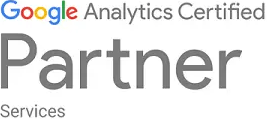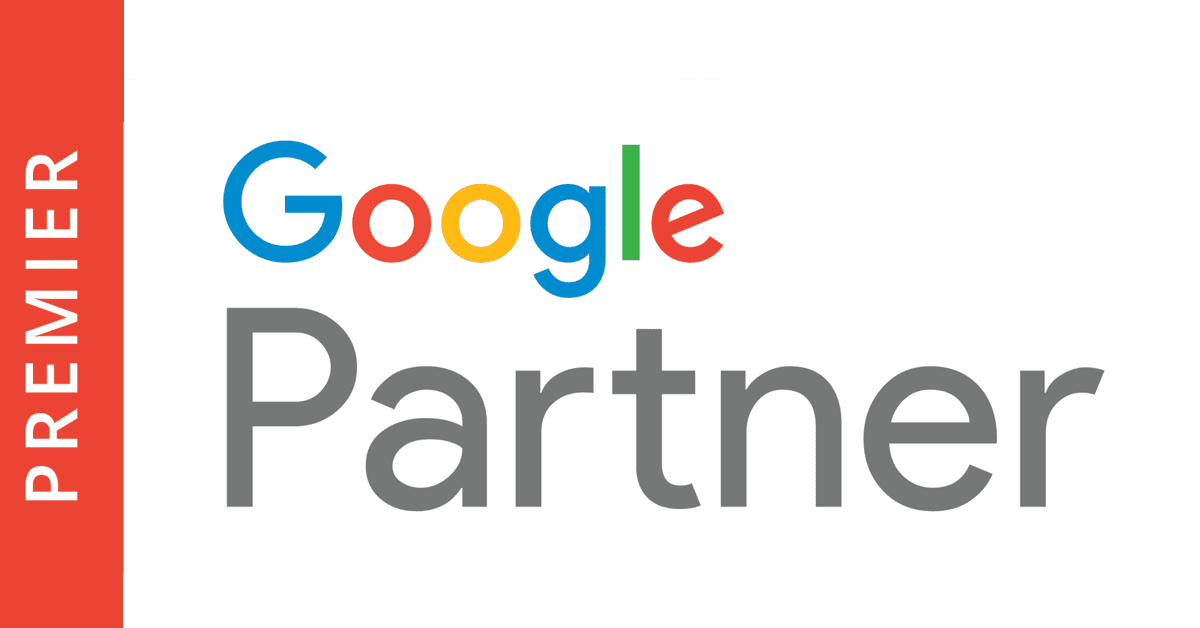As the digital world continues to evolve, the importance of SEO in business strategy is more pronounced than ever. In 2024, businesses face a digital marketplace that’s not only competitive but also constantly changing. This guide delves into how SEO can be a game-changer for businesses looking to thrive in this dynamic environment.
Table of Contents
What is SEO?
Before delving deeper into the myriad ways SEO can transform a business, it’s crucial to understand what SEO is. At its simplest, Search Engine Optimisation (SEO) is a series of strategies, techniques, and tactics used to increase the visibility of a website by obtaining a high-ranking placement in search engine results pages.
Here are the key elements of SEO:
- On-Page SEO: This includes all measures taken directly within your website to improve its position in search rankings. It encompasses optimising content, using the right keywords, improving meta tags, and ensuring the quality and relevance of the information provided.
- Off-Page SEO: This refers to actions taken outside of your own website to impact your rankings within search engine results pages. Primarily, it involves building backlinks, which are crucial for enhancing your site’s credibility and authority.
- Technical SEO: This focuses on improving the technical aspects of your website, to help improve its ranking in search engines. It includes optimising site speed, ensuring mobile-friendliness, and improving site architecture for better crawling and indexing by search engines.
The Important Role Of SEO In Your Digital Marketing Strategy
Enhancing Your Online Visibility
SEO plays a crucial role in elevating your webpage to the upper echelons of search engine results pages (SERPs). This positioning is essential for any business, especially given that the top three results in Google searches account for 61% of the overall search traffic. This highlights the significant advantage of securing a top spot in search rankings.
Boosting your conversion rates
A study by Electriq Marketing highlights the superior conversion rate of organic search traffic compared to paid traffic. Impressively, organic traffic boasts a conversion rate of 16%, significantly outperforming the 2% conversion rate observed in paid traffic. This difference underscores the potential of organic traffic as a more fruitful long-term investment, yielding a better overall return on investment.
Enhancing Trust Through Increased Online Visibility
Beyond conversions, focusing on organic traffic can substantially boost brand awareness and trust. This type of traffic stems from content that is both relevant and valuable to users, thereby enhancing a business’s reputation as a credible authority within its industry. Through the creation and distribution of insightful content, businesses can emerge as thought leaders, cultivating a loyal and trusting customer base.
SEO can help you improve brand awareness
SEO can significantly enhance brand awareness in several ways. By increasing your visibility on search engines, you attract more traffic to your site and establish your brand as a credible and authoritative source in your industry. Here’s how SEO specifically helps in boosting brand awareness:
- Higher Search Engine Rankings: More people are likely to see and recognise your brand when your website appears on the first page of search engine results. Higher rankings are often associated with credibility and trustworthiness in users’ eyes.
- Keyword Optimisation: By targeting the right keywords, especially those relevant to your brand and industry, you can appear in searches your target audience is conducting. This increases visibility and ensures that you’re attracting the right kind of traffic – people genuinely interested in what you offer.
- Content Marketing: SEO and content marketing go hand in hand. By creating valuable and informative content that ranks well, you provide solutions and answers to your potential customers’ questions. This positions your brand as an expert and a go-to resource in your field.
- Local SEO: For businesses with a physical presence, local SEO helps promote your brand to local customers. By optimising for local keywords and listing your business in local directories, you can increase your visibility among the audience in your immediate geographic area.
- Consistent Brand Messaging: SEO requires consistent content, keywords, and online information. This consistency helps reinforce your brand message and identity across different platforms. When customers consistently see the same information, it increases brand recall.
- Improved User Experience: A well-optimised site provides a better user experience. Fast loading times, mobile responsiveness, and easy navigation contribute to higher rankings and give users a positive impression of your brand.
- Social Sharing and Visibility: Content that ranks well organically is more likely to be shared on social media, increasing your brand’s visibility and awareness. Each share introduces your brand to a new network of individuals, expanding your reach exponentially.
- Backlink Profile: Earning backlinks from reputable websites boosts your SEO and exposes your brand to a wider audience. Being referenced by authoritative sources can significantly enhance your brand’s credibility and awareness.
By focusing on these aspects of SEO, you can significantly boost your brand’s visibility and awareness, ensuring that your target audience recognises and trusts your brand when they’re ready to make a purchase.
SEO’s Influence on the Customer Buying Cycle
SEO plays a pivotal role in shaping the customer buying cycle, influencing every step from initial discovery to the final purchase decision. In today’s digital-centric world, where most consumers start their buying journey online, a robust SEO strategy ensures that your products or services are visible and influential throughout this process. Here’s a detailed look at how SEO impacts the various stages of the customer buying cycle:
Awareness Stage:
During the initial stage, potential customers are either discovering a need or seeking solutions for an already identified need. Effective SEO places your business in front of these customers when they turn to search engines for information. By optimising for relevant keywords and phrases, your content appears in their search results, introducing them to your brand and solutions.
Consideration Stage:
As customers move into the consideration phase, they evaluate different options to address their needs. Here, SEO helps by ensuring your products or services rank high in searches related to your industry. This visibility allows you to present compelling content that showcases your offerings’ unique benefits, setting you apart from competitors.
Decision Stage:
In the decision-making stage, customers are ready to make a purchase but might need a final nudge. SEO strategies that focus on high-intent keywords and persuasive content can guide customers toward choosing your product or service. This includes optimising landing pages, product descriptions, and user reviews to provide all the necessary information for making an informed decision.
Post-Purchase and Loyalty Stage:
SEO also plays a role in post-purchase engagement and building customer loyalty. By creating and optimising content for customer support, FAQs, and follow-up services, you ensure that existing customers find support and information easily. This positive post-purchase experience fosters customer loyalty and increases the likelihood of repeat business and referrals.
SEO Is A Long-Term Strategy
Patience is key with SEO; It’s a marathon, not a sprint. Results may take months, but the rewards are worth the wait. Once established, a well-optimised site needs only occasional tweaking to keep up with the changing digital landscape, making SEO a sustainable and long-term strategy for business growth.
SEO is a long-term investment for any business aiming for lasting online success. It’s important to understand that SEO is a gradual process, more akin to a marathon than a sprint, with results that build and improve over time. Here’s a closer look at why a sustained SEO approach is beneficial:
- Cost-Effective Strategy: SEO is more cost-effective in the long run than ongoing paid advertising. Once high rankings are achieved, maintaining them requires less investment, making SEO a smart financial decision.
- Steady Growth and Adaptation: SEO results accumulate over time, leading to sustainable growth. Regularly adapting to search engine algorithm changes helps maintain your site’s ranking, ensuring long-term visibility.
- Building Credibility and Authority: A strong SEO presence establishes your brand’s authority and trustworthiness over time. This enhances your reputation and solidifies your position in search rankings.
- Evolving with Trends and User Behavior: SEO is not static; it evolves alongside user trends and behaviours. A long-term SEO strategy allows your business to stay relevant and aligned with these changes, keeping you ahead in the competitive digital arena.
- Foundation for Future Marketing: A robust SEO foundation enhances the effectiveness of other digital marketing efforts. It sets the stage for a comprehensive and integrated online marketing strategy.
SEO and Improving User Experience Go Hand in Hand
At its core, SEO is about providing a seamless and enjoyable experience for your website visitors. We now know that Google’s algorithms increasingly prioritise user experience, making it a crucial element of SEO strategy. A well-structured site with intuitive navigation, quick loading times, and mobile-friendly design appeals to users and ranks higher in search results.
Synergy Between SEO and Content Marketing
SEO and content marketing are two sides of the same coin. Quality content is the fuel that drives SEO. By integrating SEO into your content strategy, you ensure that your valuable, relevant, and engaging content reaches its intended audience. This combination means your content isn’t just created; it’s seen, shared, and acted upon.
More on this: A Beginner’s Guide To Content Marketing
Local SEO: Targeting Nearby Customers
Local SEO is a critical strategy for businesses that cater to customers in a specific geographical area. It’s not just about being seen; it’s about being found by the right people at the right time. For businesses looking to dominate their market and connect with customers who are ready to engage, invest, or visit, Local SEO is a powerful and necessary tool.
Here’s why Local SEO is indispensable for any businesses:
- Targeted Geographic Reach: Ensure that your business appears in searches specific to your area. When potential customers search for products or services “near me” or within your location, your business will appear in their search results. This targeted visibility is key to attracting customers who are more likely to visit your store or use your services.
- Improved Online Presence: Platforms like Google My Business and Yelp are often the first points of contact between your business and potential customers. An optimised profile on these platforms enhances your business’s online visibility and provides essential information like your address, hours, and services, making it easier for customers to find and choose you.
- Building Trust Through Reviews: Customer reviews are a cornerstone of Local SEO. Positive reviews on local directories not only improve your business’s credibility but also influence your search engine rankings. Regularly engaging with customer reviews demonstrates that you value customer feedback, further building trust within your community.
- Leveraging ‘Near Me’ Search Trends: The rise in mobile internet usage has led to an increase in “near me” search queries. By optimising for these local searches, you’re positioning your business to be discovered by users actively seeking immediate solutions, services, or products in your area.
- Gaining Competitive Edge: Compete more effectively with other businesses in your area. By appearing in local search results, you’re not just another option; you become the go-to choice for customers, standing out among competitors who may not be leveraging SEO effectively.
More on this: Most Important Local SEO Ranking Factors
Navigating Search Engine Algorithm Updates
Search engines constantly update their algorithms to deliver users the most pertinent search results. Such changes can significantly affect a website’s organic traffic, making it vital to keep up with these developments and modify your SEO approach in response.
Navigating these changes requires expertise and a flexible strategy. Mastering keyword relevance, backlink quality, and content excellence is key to maintaining and improving your website’s search ranking.
More on this: Google’s Broad Core Algorithm Updates: How to Stay Safe
The Importance of SEO is Only Increasing
Despite claims that “SEO is dead” cropping up periodically, reality has consistently proven otherwise. SEO has been an integral part of any modern digital marketing campaign. The landscape of SEO is ever-evolving, but its core importance remains. With the rise of mobile and voice search, SEO is not just surviving; it’s thriving and adapting.
Do you have an SEO Strategy? Whether you’re just starting or trying to improve your current strategy, SEO is a smart move for your business’s future online. Want to get ahead with SEO? Reach out to us, and let’s make it happen! Our team of SEO professionals offer SEO Packages that can help your website rank higher in Google search results.



















